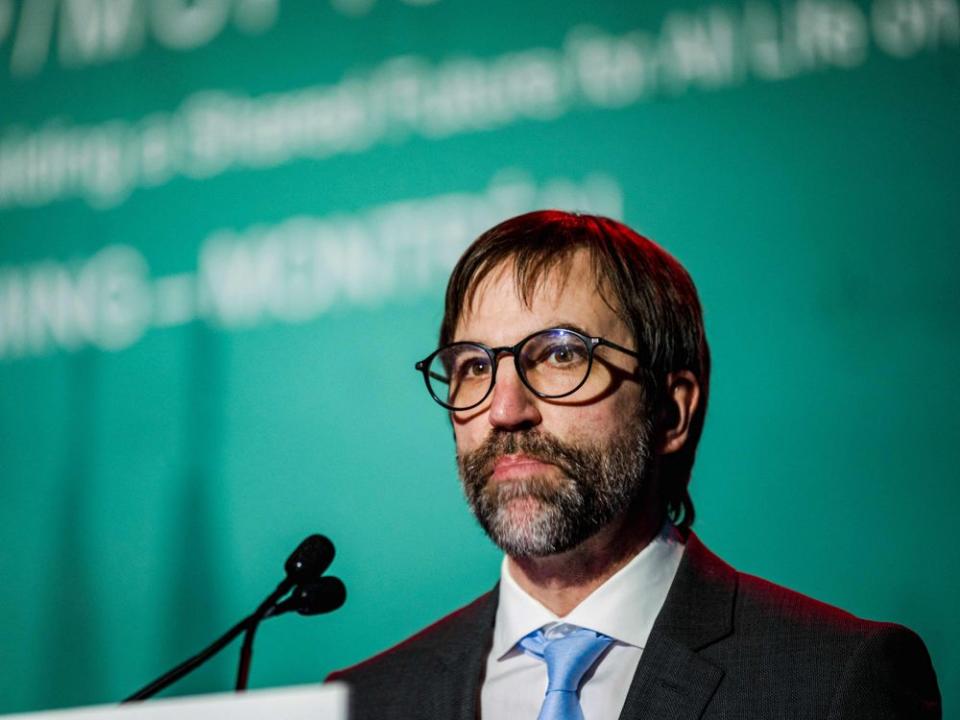Dale Swampy: Ottawa’s climate policy will prolong Indigenous poverty

Canada’s latest Environment and Climate Change report to the United Nations, submitted at the end of December, fails Canada’s Indigenous people yet again, consigning us to poverty, wiping out our path to prosperity and blocking our ability to bring traditional knowledge and wisdom to bear on protecting the land. This is only the most recent instance in a long line of failures dating back hundreds of years. Proper consultation with Indigenous people before the report’s submission might have prevented that.
In the press release accompanying the report, Environment Minister Steven Guilbeault wrote: “Canada’s commitment to reduce emissions by 40 per cent by 2030 remains not only within reach, but realistic. With the addition of measures that are not currently modelled in this report — including the cap on emissions from the oil and gas sector, and further climate programs — Canada is well positioned to reach our emissions reductions goals. This is the time to double down on climate action — to build a strong economy, create jobs, and ensure a bright future for generations to come.”
This is not realistic. Although Canada clearly is not prepared to meet its 2030 goals the report suggests they will be attained easily. That is simply not true. The government’s plan is a blueprint for pain and poverty. Many of our leaders are therefore very disappointed with this announcement.
It makes no mention of the detrimental effects this legislation will have on the impoverished in this country, who include 70 per cent of our members living on-reserve. Many will be unable to pay the high cost of utilities and energy that will follow from the plan.
We also want to debunk the minister’s suggestion that he has been working with First Nations on this plan. We have never been consulted. We only know what we read in the media. He should, please, stop speaking on our behalf.
Federal officials need to understand the climate challenge isn’t an either/or proposition. They need to understand Canadian industry’s commitment to protecting the environment. The oil and gas industry in particular takes great strides to protect the land, water and air — reducing GHG emissions intensity and fresh water use and investing heavily in clean technology like carbon capture and storage (CCS) in its attempt to reach net zero by 2050.
That is where the government’s priorities should lie, too. Engaging in proven solutions would have a more meaningful impact than instead chasing idealism that will beggar our economy and hurt people from coast to coast. The responsible development and use of oil and gas underpin the global economy. They build and support quality of life.
Wiping out the industry in Canada — which is what the “Just Transition” aims to achieve — will do nothing to reduce global emissions or demand.
Canada’s First Nations now have historic involvement with the energy industry. As noted by the Canadian Energy Centre, Indigenous leadership in Canadian oil and gas is set to continue growing after a landmark 2022. Last year, a total of 39 communities in B.C. and Alberta launched investment in major pipelines, while two proposed Indigenous-owned LNG projects advanced through the regulatory process.
In March, 16 Indigenous communities along the route of the Coastal GasLink pipeline announced a partnership with TC Energy to become 10 per cent owners once it is up and running in 2023. In September, 23 First Nations and Métis communities in northern Alberta announced they will take a nearly 12 per cent ownership stake in seven Enbridge oil sands pipelines. These are partnerships that will help Canada’s First Nations, help Canada and help the world.
Within days, a B.C. government decision is expected on whether the Haisla Nation and partner Pembina Pipeline Corp. can proceed with Cedar LNG, one of the largest Indigenous-owned infrastructure projects in Canada’s history. Canadian LNG can bring meaningful global emissions reductions by supplanting coal use in other countries currently building hundreds of coal-fired power plants.
The Canadian government talks a lot about reconciliation. A huge part of actually acting on reconciliation is allowing Canada’s First Nations to prosper while contributing our knowledge to solving the climate challenge. The current government plan doesn’t do that.
Dale Swampy, a member of the Samson Cree Nation, is president of the National Coalition of Chiefs.

 Yahoo Finance
Yahoo Finance 